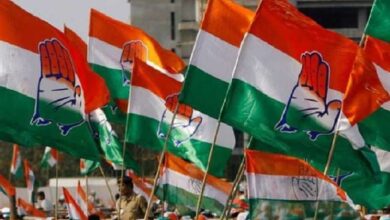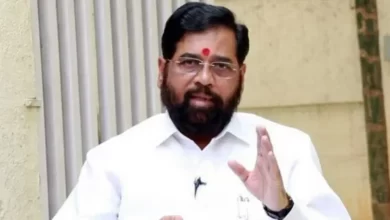The dangers of silence on violence

[ad_1]
The tacit acceptance of violence and aggression has caused enormous damage to the institutional framework.
Jyoti Sidana
The tacit acceptance of violence and aggression has caused enormous damage to the institutional framework. The question is what should we do so that the atmosphere of violence ends and Indian society can become a part of peaceful system. What are the alternatives which can be able to make the society free from fear and violence, this is a matter of debate.
Violence, violence, anger, fear, untruth and aggression have not only established dominance but are also getting legitimacy everywhere in the society. What is more worrying is that the tendency to ignore such incidents as normal has also increased rapidly. This is being seen both at the level of society and government. Defining violence, Mahatma Gandhi had described violence as a form of ill-will, falsehood, malice, ill-will, caste hatred, etc. At the same time, it is also violence to keep possession of what is necessary for the world. But today we have many such examples which can be discussed in this context.
Various forms of violence have emerged in the society from time to time. Verbal, physical and emotional violence, violence in the ego of power and money, violence arising out of unemployment, poverty, constant oppression and desperation, us versus them and its relation to violence, resentment towards police behavior and violence And so on. Violence due to estrangement in personal relations within households, violence for property and dominance in the family, etc., are also its forms and causes, which have either broken formal and informal institutions or have reached the brink of collapse. . Not only this, filing false cases using political, administrative and money power is also a form of violence.
This type of violence pushes the society towards vengeance. It is also a fact that corruption has always been a form of violence. Incidents such as taking lives on petty matters, beatings and murders on suspicion of personal relationships, love affairs or murders for inter-caste marriages have become commonplace now-a-days. Therefore, violence of any kind, however, creates a hindrance in the development and progress of the society. Therefore, it would not be wrong to say that today the country remains at a low level in the global indices of democracy, prosperity, human development, gender equality etc. The root cause of this is also somewhere in the increasing violent tendencies.
The types of violent incidents that have been seen in recent days are more serious. For example, in Lakhimpur Kheri, Uttar Pradesh, the protesting farmers were crushed by the vehicles of a convoy. It is alleged that one of these vehicles was a minister-son. Violence erupted in retaliation and four more people were killed. The increasing incidents of rape in the country show that we have destroyed the dignity of women. Talking about electoral violence, the violence after the election results in West Bengal has once again raised important questions of democracy and law and order. The increasing violence against minorities and Dalits is a testimony to the growing disintegration trend in the society.
All such incidents of violence are aimed at converting a spiritual and peace loving society into a violent one. Talking about terrorism, today this problem exists in the most frightening form of global violence and most of the countries of the world are plagued by it. The question is, can terrorism be ended only by force? The prudent answer would be that never. If this could happen then when terrorism, extremism or crime would have ended from the world. To say that all the countries are campaigning against terrorist organizations, but this problem is increasing instead of ending.
India has been a multi-cultural nation. The questions of ‘our culture’ and ‘their culture’ in the country have never been so important and serious as they are being seen in the present era. The entire media seems to be focused on these aspects. It is seen that by associating tradition with pride, many individuals or groups are taking pride in presenting their anger and their aggression. In fact, a proud acceptance of tradition refers to the presence of violence in certain people or groups that emerges in their thoughts, discussions and activities.
This situation gradually develops such an authoritarian character in those people in whom self-dominance and self-respect are the best. Perhaps this aspect takes him beyond the values of democracy and tolerance. Such people prove their superiority with anger and aggression and attribute their weakness to other groups and their tolerance. But they forget that with the help of aggression and violence, any group or individual becomes effective for a short time but it cannot be so for long. His own group begins to fear that his aggression and violent reaction may harm his group itself.
In a developed democracy, protest and dissent is the right of any citizen. It is the responsibility of the state and administration to protect this right, not to try to intimidate him or to suppress this right by force by taking violent or aggressive steps against him. Nobel laureate Indian economist Amartya Sen had once expressed his anger over such increasing incidents, saying that the scope for discussion and dissent in the country is becoming less. At the same time, it cannot be denied that comparatively now the incidents of custodial death have also increased.
It is a paradox that the values of truth and non-violence of Gandhiji, which were incorporated by personalities like Martin Luther King and Nelson Mandela in their lifestyle and work, the same values are being seen marginalized in their country. It should not be hesitant to say that Mahatma Gandhi, Martin Luther King and Nelson Mandela are the milestones in the history of the continuing global struggle against human exploitation, which make the history of world civilization golden and activism against violence, conflict and exploitation. become a symbol of. The question is, why have we not been able to make the values of truth, non-violence, peace, justice and equality a part of every citizen’s lifestyle and personality till now?
The tacit acceptance of violence and aggression has caused enormous damage to the institutional framework. The question is what should we do so that the atmosphere of violence ends and Indian society can become a part of peaceful system. What are the alternatives which can be able to make the society free from fear and violence, this is a matter of debate. Along with this, it also has to be thought that how education can play an important role in making the society violence free? What efforts should be made so that the culture of violence spreading in the society does not get legitimacy? These are important questions on which there is an urgent need for collective reflection.
.
[ad_2]






